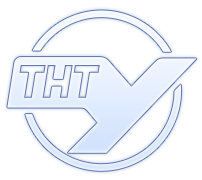|
|
|
Штучний інтелект в освітньому процесі та наукових дослідженнях здобувачів вищої освіти: відповідальні межі вмісту ШІ
| Назва | Штучний інтелект в освітньому процесі та наукових дослідженнях здобувачів вищої освіти: відповідальні межі вмісту ШІ |
| Назва англійською | Artificial intelligence in the educational process and scientific research of higher education applicants: responsible boundaries of AI content |
| Автори | Олена Панухник |
| ORCID | 0 |
Принадлежність |
Тернопільський національний технічний університет імені Івана Пулюя, Тернопіль, Україна |
| Бібліографічний опис | Панухник О. Штучний інтелект в освітньому процесі та наукових дослідженнях здобувачів вищої освіти: відповідальні межі вмісту ШІ. Галицький економічний вісник. 2023. Том 84. № 4. С. 202-211. |
| Bibliographic description (trans): | Panukhnyk O. Artificial intelligence in the educational process and scientific research of higher education applicants: responsible boundaries of AI content. Galician economic journal, vol. 83, no 4, pp. 202-211. |
| Bibliographic description: | Panukhnyk O. Artificial intelligence in the educational process and scientific research of higher education applicants: responsible boundaries of AI content. Galician economic journal, vol. 83, no 4, pp. 202-211. |
| UDC: |
378.1:371.38:004.8 |
| DOI | https://doi.org/10.33108/galicianvisnyk_tntu2023.04.202 |
| Ключові слова |
інформаційні технології; штучний інтелект; наукова діяльність; освітній процес; здобувач вищої освіти. |
| Короткий опис |
Акцентовано увагу на питанні активізації комплексних досліджень щодо сучасних інформаційних технологій, зокрема основ штучного інтелекту, в системі освіти й наукових розвідках здобувачів вищої школи з метою формування сприятливого, результативного, якісного й етичного процесу отримання знань у контексті становлення інформаційного суспільства. В науковому спостереженні подано деталізований ретроспективний аналіз понятійно-категоріального апарату «штучний інтелект» з позиції загальновизнаних наукових теорій та провідних ідей вітчизняних і закордонних науковців задля подальшого теоретико-методологічного його закріплення. Актуальність наукового дослідження зумовлена високою сьогочасною залежністю студентів вищої освіти від наукоємних технологій, котрі допомагають вирішувати завдання самовизначення, самоконтролю й самореалізації, а також сприяють формуванню цілісної, варіативно мислездатної, креативної особистості з новим типом і рівнем міркування, з новітніми цінностями, компетентностями й поглядами на професійний рівень майбутнього фахівця. Враховуючи сучасні бачення, крізь призму інформатизаційної складової розвитку освіти та науки серед студентства, визначено, що завдяки технологіям штучного інтелекту, який моделює процеси людського інтелекту для висновків, комп’ютерні системи можуть пропонувати здобувачам персоналізоване, адаптивне або інтервальне навчання, автоматичне оцінювання навчальних досягнень, підтримку та зворотний зв’язок під час навчального процесу. Виявлено, що віртуальна реальність як новоорганізований соціальний простір, призводить до планомірних, консеквентних й систематизованих перемін у навчальному процесі й науково-дослідній роботі здобувачів закладів вищої освіти, удосконалення наявних і формування досі не бачених організаційних форм, видів та методів навчання, а також змінює взаємодіяння між викладачем і студентом та освітнім середовищем у цілому. Окрім цього, визначено, що штучний інтелект як модерний педагогічний механізм сучасності має важливе концептуальне і методологічне значення в процесі плодотворного єднання освіти та науки. |
| ISSN: | 2409-8892 |
| Перелік літератури |
-
Turing A. M. Computing Machinery and Intelligence. Mind. 1950. Vol. 49. No. 236. P. 433–460.
-
Newell A., Shaw C., Simon H. Report on a General Problem-Solving Program. Proceedings of the International Conference on Information Processing. 1959. P. 256–264.
-
McCarthy J., Minsky M.L., Rochester N., Shannon C.E. A proposal for the Dartmouth summer research project on Artificial Intelligence, 1955. AI Magazine. 2006. Vol. 27. No. 4. P. 12–14.
-
Robinson J. A machine-oriented logic based on the resolution principle. Journal of the ACM (JACM). 1965. Vol. 12. No. 1. P. 23–41.
-
Weizenbaum J. ELIZA – a computer program for the study of natural language communication between man and machine. In Communication of the ACM. 1966. Vol. 9. No. 1. P. 36–45.
-
Rubin P. A Conversation with Jaron Lanier, VR Juggernaut. The Wired : website. 2017. URL: https:// www.wired.com/story/jaron-lanier-vr-interview/ (Last accessed: 17.05.2023).
-
Біокібернетика Миколи Амосова. Інформаційні технології в Україні: історії та особистості: веб-сайт. URL: http://ua.uacomputing.com/stories/nikolay-amosovs-bio-cybernetics (дата звернення: 25.05.2023).
-
Hinton G., Osindero S., Teh Y. A fast learning algorithm for deep belief nets. Neural Computation. 2006. Vol. 18. P. 1527–1554.
-
Fukuyama F. Political order and political decay : from the industrial revolution to the globalization of democracy. New York : Farrar, Strauss and Giroux, 2014. 672 p.
-
Погореленко А. Штучний інтелект : сутність, аналіз застосування, перспективи розвитку. Економічні науки. 2018. Вип. 32. С. 22–27.
-
Sadiku M. N., Ashaolu T. J., Ajayi-Majebi A. & Musa S. M. Artificial intelligence in education. International Journal of Scientific Advances (IJSCIA). 2021. Vol. 2 (1). P. 5–11.
-
Joshi S., Rambola R. K. & Churi P. Evaluating artificial intelligence in education for next generation. In Journal of Physics : Conference Series. Bristol: IOP Publishing. 2021. Vol. 1714. No. 1. P. 12–39.
-
Chen L., Chen P. & Lin Z. Artificial intelligence in education : a review. Ieee Access. 2020. Vol. 8. P. 75264–75278.
-
Panigrahi C. M. Use of artificial intelligence in education. Management Accountant. 2020. Vol. 55 (5). P. 64–67.
-
Huang J., Saleh S. & Liu Y. A review on artificial intelligence in education. Academic Journal of Interdisciplinary Studies. 2021. Vol. 10 (3). P. 206–206.
-
Aleven V., Roll I., McLaren B. M. and Koedinger K. R. Help helps, but only so much : research on help seeking with intelligent tutoring systems. International Journal of Artificial Intelligence in Education. 2016. Vol. 26. P. 205–223.
-
Dillenbourg P. The evolution of research on digital education. International Journal of Artificial Intelligence in Education. 2016. Vol. 26. P. 544–560.
-
Поліщук О., Поліщук О., Дудченко В. Філософія штучного інтелекту в освітньому процесі. Humanities studies : Collection of Scientific Papers. 2022. Вип. 13 (90). С. 103–109.
-
Minsky M. Semantic Information Processing. Cambridge Mass. : MIT Press, 1968. 440 p.
-
Четверта промислова революція заради Землі. Використання можливостей штучного інтелекту на користь Землі. 2018. URL: https://www.pwc.com/ua/uk/survey/2018/ai-for-the-earth-jan-2018.pdf (дата звернення: 05.06.2023).
-
Communication from the Commission to the European Parliament, the Council, the European Economic and Social Committee and the Committee of the Regions: Artificial Intelligence for Europe. European Commission. Brussels. 2018. 20 p.
-
Recommendation of the Council on Artificial Intelligence OECD/LEGAL/0449. Organization for Economic Co-operation and Development (OECD). 2019. URL: https://legalinstruments.oecd.org/ en/instruments/OECD-LEGAL-0449 (Last accessed: 10.06.2023).
-
AI Glossary. Council of Europe portal. 2021. URL: https://coe.int/en/web/artificial-intelligence/glossary (Last accessed: 21.06.2023).
-
Artificial intelligence : Ensuring respect for democracy, human rights and the rule of law. The Council of Europe. 2021. URL: https://pace.coe.int/en/pages/artificial-intelligence (Last accessed: 17.05.2023).
-
Policy guidance on AI for children. UNICEF. 2021. 60 p. URL: https://unicef.org/globalinsight/reports/policy-guidance-ai-children (Last accessed: 29.06.2023).
-
Recommendation on the Ethics of Artificial Intelligence. UNESCO. 2021. 44 p. URL: https://unesdoc. unesco.org/ark:/48223/pf0000381137 (Last accessed: 01.06.2023).
|
| References: |
-
Turing A. M. Computing Machinery and Intelligence. Mind. 1950. Vol. 49. No. 236. P. 433–460.
-
Newell A., Shaw C., Simon H. Report on a General Problem-Solving Program. Proceedings of the International Conference on Information Processing. 1959. P. 256–264.
-
McCarthy J., Minsky M.L., Rochester N., Shannon C.E. A proposal for the Dartmouth summer research project on Artificial Intelligence, 1955. AI Magazine. 2006. Vol. 27. No. 4. P. 12–14.
-
Robinson J. A machine-oriented logic based on the resolution principle. Journal of the ACM (JACM). 1965. Vol. 12. No. 1. P. 23–41.
-
Weizenbaum J. ELIZA – a computer program for the study of natural language communication between man and machine. In Communication of the ACM. 1966. Vol. 9. No. 1. P. 36–45.
-
Rubin P. A Conversation with Jaron Lanier, VR Juggernaut. The Wired : website. 2017. URL: https:// www.wired.com/story/jaron-lanier-vr-interview/ (Last accessed: 17.05.2023).
-
Biokibernetyka Mykoly Amosova [Nikolay Amosov’s Bio-cybernetics]. Informatsiini tekhnolohii v Ukraini : istorii ta osobystosti [History of computing in Ukraine] : website. Available at: http://ua.uacomputing.com/stories/nikolay-amosovs-bio-cybernetics (accessed: 25 May 2023).
-
Hinton G., Osindero S., Teh Y. (2006). A fast learning algorithm for deep belief nets. Neural Computation. Vol. 18. P. 1527–1554.
-
Fukuyama F. (2014). Political order and political decay : from the industrial revolution to the globalization of democracy. New York : Farrar, Strauss and Giroux. 672 p.
-
Pogorelenko A. (2018). Shtuchnyi intelekt: sutnist, analiz zastosuvannia, perspektyvy rozvytku [Artificial intelligence : essence, analysis of application, prospects of development]. Ekonomichni nauky [Economic sciences]. Vol. 32. Р. 22–27
-
Sadiku M. N., Ashaolu T. J., Ajayi-Majebi A. & Musa S. M. Artificial intelligence in education. International Journal of Scientific Advances (IJSCIA). 2021. Vol. 2 (1). P. 5–11.
-
Joshi S., Rambola R. K. & Churi P. Evaluating artificial intelligence in education for next generation. In Journal of Physics : Conference Series. Bristol: IOP Publishing. 2021. Vol. 1714. No. 1. P. 12–39.
-
Chen L., Chen P. & Lin Z. Artificial intelligence in education : a review. Ieee Access. 2020. Vol. 8. P. 75264–75278.
-
Panigrahi C. M. Use of artificial intelligence in education. Management Accountant. 2020. Vol. 55 (5). P. 64–67.
-
Huang J., Saleh S. & Liu Y. A review on artificial intelligence in education. Academic Journal of Interdisciplinary Studies. 2021. Vol. 10 (3). P. 206–206.
-
Aleven V., Roll I., McLaren B. M. and Koedinger K. R. Help helps, but only so much : research on help seeking with intelligent tutoring systems. International Journal of Artificial Intelligence in Education. 2016. Vol. 26. P. 205–223.
-
Dillenbourg P. The evolution of research on digital education. International Journal of Artificial Intelligence in Education. 2016. Vol. 26. P. 544–560.
-
Polishchuk O., Polishchuk O., Dudchenko V. (2022). Filosofiia shtuchnoho intelektu v osvitnomu protsesi [The philosophy of artificial intelligence in the educational process]. Humanities studies : Collection of Scientific Papers. Vol. 13 (90). P. 103–109.
-
Minsky M. (1968). Semantic Information Processing. Cambridge Mass.: MIT Press. 440 p.
-
Chetverta promyslova revolyutsiya zarady Zemli. Vykorystannya mozhlyvostey shtuchnoho intelektu na koryst’ Zemli [The Fourth Industrial Revolution for the Earth. Using the possibilities of artificial intelligence in favor of the Earth] (2018). URL: https://www.pwc.com/ua/uk/survey/2018/ai-for-the-earth-jan-2018.pdf (accessed: 5 June 2023).
-
Communication from the Commission to the European Parliament, the Council, the European Economic and Social Committee and the Committee of the Regions: Artificial Intelligence for Europe. European Commission. Brussels. 2018. 20 p.
-
Recommendation of the Council on Artificial Intelligence OECD/LEGAL/0449. Organization for Economic Co-operation and Development (OECD). 2019. URL: https://legalinstruments.oecd.org/ en/instruments/OECD-LEGAL-0449 (Last accessed: 10.06.2023).
-
AI Glossary. Council of Europe portal. 2021. URL: https://coe.int/en/web/artificial-intelligence/glossary (Last accessed: 21.06.2023).
-
Artificial intelligence : Ensuring respect for democracy, human rights and the rule of law. The Council of Europe. 2021. URL: https://pace.coe.int/en/pages/artificial-intelligence (Last accessed: 17.05.2023).
-
Policy guidance on AI for children. UNICEF. 2021. 60 p. URL: https://unicef.org/globalinsight/reports/policy-guidance-ai-children (Last accessed: 29.06.2023).
-
Recommendation on the Ethics of Artificial Intelligence. UNESCO. 2021. 44 p. URL: https://unesdoc. unesco.org/ark:/48223/pf0000381137 (Last accessed: 01.06.2023).
|
| Завантажити |  |
|







